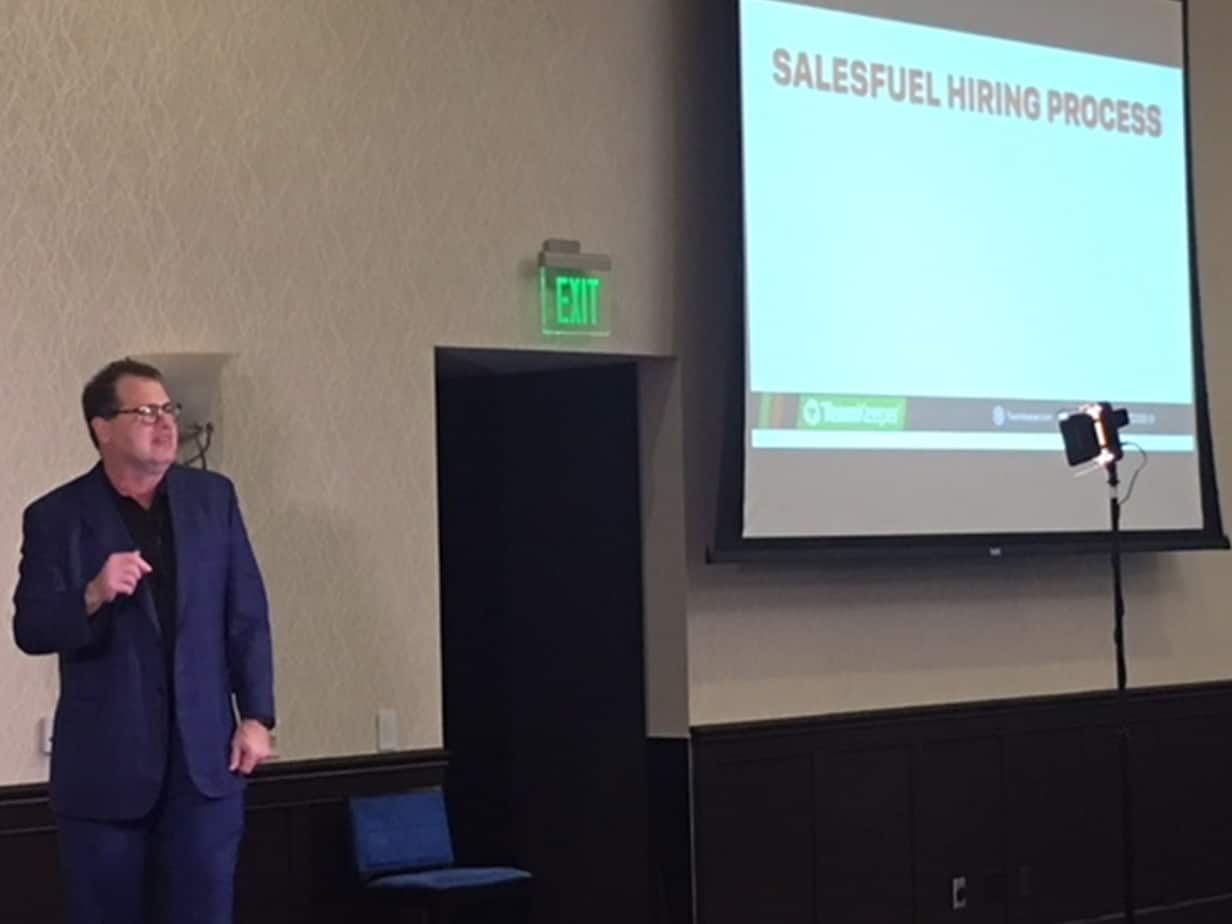
C. Lee Smith spoke to a sold-out crowd of 120 at the Leadership+Talent Development Summit today in San Diego. The CEO of SalesFuel is focused on fixing culture for organizations. "The thing about culture is you can't fix culture without fixing the managers," he began. "You're in the space," he said to the attendees. "You're hearing a lot about culture. I want to talk about why culture matters."
Smith went on to explain why obsessing over culture is a good thing. He used a stat from the Harvard Business Review. "Companies that invest in employee experience are 4x more profitable than those that don’t."
But are you paying enough attention to workplace culture?" He asked the audience. "The biggest problem is figuring out what the heck culture is. It's not ping pong. It's not we'll give you an omelette bar but you have to work here 18 hours a day."
Smith thinks culture is what brings a team together and what sets that team apart. "How do you rally around to fix things? It's not always about celebrating the wins, although we should do a lot of that too," he explained.
He believes culture is created by the front line managers who accept behavior and set the tone. Because it's the managers who enforce the mission statement. Who you hire, who you fire, who you promote, and who you write up are statements of what your culture is.
During the presentation, he provided six ways managers are killing their cultures. I'm highlighting two here:
1 Not minding or measuring their culture
"Be sure you're taking stock of turnover rates, and calculating lost work hours (who's leaving early, coming in late). Are you asking what their perception of leadership is? Keep in mind: your culture is not what you say it is, it's what they say it is. So ask them. They are dying to tell you. You can identify skill gaps in managers."
2 Not meeting the needs (or expectations) of their team
"Things like professional development, public recognition, constant feedback are expected now. Why are you waiting a year to fix it? Why are you putting off issues that come up in evaluations? Employees expect great compensation NOW. They expect opportunities for advancement. We added another layer of management to my own company so managers could more effectively develop fewer employees. I never thought I'd advocate for adding more management because I preferred a flat organization, but it's what our culture needed. Do a manager audit. When was the last time your managers received a refresher on management training? How are their soft skills?"
Smith closed with reminding the executive coaches and leaders in attendance that a mistake leaders often make is spending too much time trying to save employees who aren't coachable. "We need to spend more time on coachable employees, who have drive, coachability, belief, a good attitude and empathy all to make a good fit for investing time and resources into coaching them."
